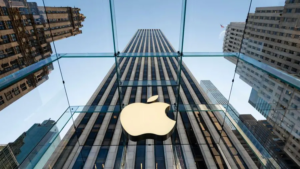
While crypto enthusiasts might be familiar with market-moving events like Bitcoin “halving” or the launch of “spot ETFs,” their significance can be less clear to many others. But don’t worry. Whether you’re encountering these terms for the first time or just need a refresher, here are a few key words and their meanings.
Introduction to Bitcoin
Bitcoin is a popular digital currency known worldwide. Unlike traditional currencies like the dollar or pound, Bitcoin operates without centralized control, making it appealing for those seeking financial independence. However, its value is highly volatile, fluctuating based on market demand.
Bitcoin “Halving”
The Bitcoin blockchain, which validates transactions, rewards miners with bitcoins. To maintain scarcity, the number of bitcoins that can be mined is capped at 21 million. Every four years, the reward for miners halves, creating scarcity and potentially driving up demand.
Blockchain Technology
Blockchain serves as the foundation for cryptocurrencies like Bitcoin and products such as NFTs. It functions as a virtual ledger for recording transactions, with each transaction verified by a network of volunteers through mining. However, the energy-intensive mining process has sparked controversy.
Crypto Exchange
A crypto exchange is a digital platform where users can buy, sell, and trade cryptocurrencies, similar to traditional stock exchanges. Users can convert traditional currency into cryptocurrencies like Bitcoin or Ethereum, often incurring transaction fees.
Crypto Wallet
A crypto wallet is where investors store their cryptocurrencies, similar to a physical wallet holding cash. There are two types: hot wallets connected to the internet for quick access, and cold wallets, offline for enhanced security.
Ethereum
Ethereum is the second-largest cryptocurrency by market capitalization, supporting the Ether token. It operates on a blockchain allowing various applications and assets, including NFTs. Ethereum aims to be more environmentally friendly than Bitcoin.
Exchange-Traded Funds (ETFs)
ETFs are investment portfolios that track the performance of multiple assets without direct ownership. Spot Bitcoin ETFs buy cryptocurrency directly at current market prices, enabling investors to enter the Bitcoin market without managing digital wallets or exchanges.Decentralized Finance (DeFi)
Decentralized Finance, or DeFi, represents a broad category of financial applications built on blockchain technology. DeFi aims to recreate and improve upon traditional financial systems, offering services like lending, borrowing, and trading without relying on centralized intermediaries such as banks. By using smart contracts, DeFi platforms provide greater transparency, accessibility, and efficiency.
Mining Pools
Mining pools are groups of cryptocurrency miners who combine their computational resources to increase their chances of solving complex mathematical problems and earning rewards. By pooling their efforts, participants receive a more stable and predictable income, sharing the rewards proportionally based on the computational power they contribute. Mining pools help individual miners compete against larger entities, promoting decentralization.
Smart Contracts
Smart contracts are self-executing contracts with the terms of the agreement directly written into code. They automatically enforce and execute the contract when predefined conditions are met. Smart contracts eliminate the need for intermediaries, reducing the risk of fraud and increasing transaction speed and efficiency. Ethereum is a leading platform for developing and deploying smart contracts.
Initial Coin Offering (ICO)
An Initial Coin Offering (ICO) is a fundraising method used by new cryptocurrency projects to raise capital. Similar to an Initial Public Offering (IPO) in the stock market, an ICO allows investors to purchase tokens that represent a stake in the project. ICOs provide early-stage funding, but they also carry significant risks due to the lack of regulation and potential for fraud.
Decentralized Autonomous Organization (DAO)
A Decentralized Autonomous Organization (DAO) is an organization governed by smart contracts and operated by a community of stakeholders without centralized leadership. Decisions within a DAO are made through voting mechanisms, with each member’s voting power typically proportional to the number of tokens they hold. DAOs aim to create more democratic and transparent governance structures for managing collective resources and projects.
Stablecoins
Stablecoins are a type of cryptocurrency designed to maintain a stable value by being pegged to a reserve asset such as a fiat currency (e.g., USD) or a commodity (e.g., gold). They provide the benefits of cryptocurrencies—such as fast transactions and low fees—while minimizing the volatility often associated with digital assets. Stablecoins are commonly used in trading and as a bridge between traditional finance and the crypto ecosystem.
Non-Fungible Tokens (NFTs)
Non-Fungible Tokens (NFTs) are unique digital assets that represent ownership of a specific item or piece of content, such as art, music, or virtual real estate. Unlike fungible tokens like Bitcoin, each NFT has distinct properties and cannot be exchanged on a one-to-one basis with another NFT. NFTs leverage blockchain technology to provide verifiable ownership and provenance, revolutionizing the way digital and physical assets are bought, sold, and traded.


























